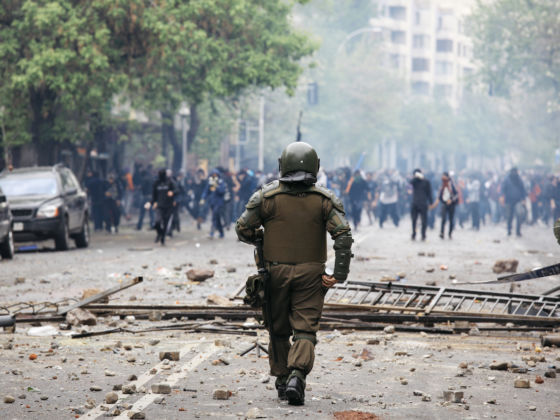At least 11 people have been killed in violent protests in Santiago, Chile, sparked by anger over income inequality and the city’s high cost of living. Chile ranks among the worst for countries with a wealth gap between rich and poor citizens, and the recent unrest has only highlighted the already deep divisions in the country. Military and police have attempted to contain protests by using tear gas and water cannons, and imposing curfews, but the state of emergency in Santiago will nevertheless be extended to cities in the country’s north and south.


Violent Protests in Santiago, Chile, Leave 11 Dead, State of Emergency Declared
The protests began after a metro fare hike, and though that fare has since been suspended, the anger over the high cost of living remains. Public transportation has been suspended, flights have been canceled, and banks, schools, and shops have closed due to the violence, with 70 “serious incidents of violence” occurring since the protests began. Protestors have set buses on fire, destroyed metro stations, fought with riot police, and looted over 40 supermarkets and other businesses.
Interior Minister Andrés Chadwick said, “We’re facing a real escalation that is undoubtedly organized to cause serious damage to our country and the lives of each of its citizens.”
Chile’s president, Sebastián Piñera, hasn’t exactly been sympathetic to the plight of the protestors. “We’re very aware that [those behind the riots] have a degree of organization, logistics, typical of a criminal organization,” he said in a TV speech. “I call on all my compatriots to unite in this battle against violence and delinquency.”
Calling protestors “criminals,” Piñera added, “We’re at war against a powerful and implacable enemy who doesn’t respect anything or anyone, and who’s willing to use limitless violence and criminal acts.”